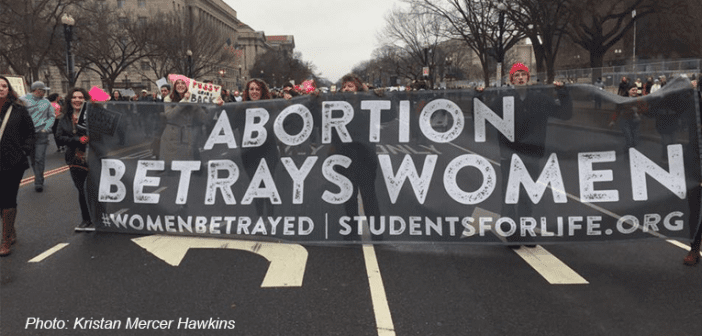The New York Times is not known for featuring Pro-Life viewpoints or for being unbiased on Life issues. Nonetheless, the rabidly anti-Life editorial board decided this week to feature a Pro-Life op-ed by Texas’s own Lauren Enriquez. Enriquez’s article “How the New Feminist Resistance Leaves Out American Women” takes mainstream feminism to task for claiming to speak for all women yet demanding that all women accept the violence of abortion.
Speaking on behalf of Pro-Life women, Enriquez writes:
To us, “resistance” has to include opposition to the lie that freedom can be bought with the blood of our preborn children.
We reject the notion that we need free abortion on demand without apology. We are offended by the news media’s belligerent efforts to portray the pro-abortion movement as normal, while turning a blind eye to the millions of us who believe that women deserve something better than abortion. We reject a vitriolic minority claiming to speak on our behalf and excluding us from the “women’s movement.”
The piece was prompted in part by the organizers of the so-called “Women’s March” in January discriminating against Pro-Life groups and refusing to list them as event sponsors. In their public rejection of Pro-Lifers, the organizers of the Women’s March revealed their extreme loyalty to the abortion lobby. Although they claim to march for all women, their actions demonstrate their total disregard for preborn women and the women forever wounded by the lie that abortion is necessary for their success.
Enriquez addresses the disingenuousness of the anti-Life position when she describes what compassionate care for pregnant mothers looks like. She writes:
Groups like ours [Human Coalition] work with each woman to identify the unique circumstances that have made her feel powerless, and then we respond to those needs. That can mean going with her to apply for Medicaid; helping her to secure safe, affordable housing; finding child care solutions; or helping her improve her résumé and find employment. There is no debate: Women face hurdles in pregnancy. But I refuse to accept that peddling death in the face of crisis can ever truly empower a woman.
Indeed, contrary to the stereotypes perpetuated in anti-Life media, many Pro-Lifers are committed to truly helping women and their families, not merely being “pro-birth.” While the challenges a woman faces can be daunting, the crisis is her situation; the child is not the crisis. Compassionate care requires assisting women and their families in removing the obstacles, so that they can welcome the gift of new life, whether the mother ultimately chooses to parent her child or place the baby in a loving adoptive family.
In Texas, the Alternatives to Abortion program features many such organizations. The network consists of social service providers including adoption agencies, maternity homes, and pregnancy centers. Pro-Life lawmakers prioritize women’s health and wellness as Enriquez and so many other Pro-Lifers do. Enriquez states of her article, “As a woman who has been involved in the Pro-Life movement for my entire adult life, I want to obliterate the stereotype that the people working to end abortion hate women.” While most Pro-Lifers were already well aware of this fact, hopefully an op-ed in the New York Times will open more eyes to the truth: To be pro-woman is to be Pro-Life.

